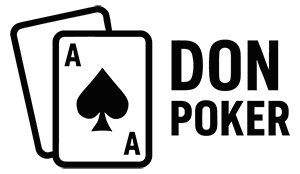Poker is a card game. A gambling game. A strategy game. A mind game. A psychological cage match disguised as a chill night with chips and beer.
But at its core, poker is a game of decisions. You’re not just playing the cards in your hand—you’re playing the people across from you. And most of them are playing terribly.
So What Is Poker, Exactly?
At a high level, poker is a game where players bet on who has the best hand. Or at least, who can convince everyone else they do. The winner takes the pot—the pile of chips or money in the center of the table.
There are lots of poker variants, but we’re focusing on Texas Hold’em, because:
- It’s the most popular version in the world.
- It’s the one you see on TV.
- Learning one version is hard enough. Let’s not get fancy.
Texas Hold’em in 10 Seconds
Each player is dealt two private cards (called “hole cards”). Then five community cards are dealt face-up in the middle of the table in three stages: the flop (3 cards), the turn (1 card), and the river (1 card). Players use any combination of their two hole cards and the five community cards to make the best five-card hand.
Betting happens after each round of cards is revealed. You can fold, call, raise, or bluff your way through. The best hand wins at showdown—unless everyone else folds first.
Other Variants (If You Must Know)
- Omaha: Like Texas Hold’em, but you get four hole cards and must use exactly two.
- Seven-Card Stud: No community cards. Used to be popular before Hold’em took over.
- Five-Card Draw: You get five cards, can trade some in, and try to build a hand.
Why People Love Poker
- It’s Social: Even when you’re taking people’s money, you’re talking, laughing, judging quietly.
- It’s Strategic: Every decision—call, fold, raise—is a puzzle.
- It’s Not Just Luck: Over time, good players win. Bad players lose. It’s beautiful.
- It’s Humbling: Even pros get crushed sometimes. That’s part of the fun (and the pain).
Your Job as a Beginner
Right now, don’t worry about winning big or bluffing like a movie villain. Just focus on learning the rules, avoiding common mistakes, and making slightly fewer bad decisions than the person next to you.
Next Up: The Rules of Texas Hold’em
